1 Eligible Applicants are unlisted entities, typically young companies with limited resources, that are initiating their first or second institutional vehicle, with the objective to advise and/or manage this vehicle. Managed accounts, SPVs, and pilot vehicles with limited AUM are not considered institutional vehicles. If the Applicant is part of a group of companies, i.e., multiple companies which are directly or indirectly controlled by a controlling entity, eligibility will consider on a group basis. Consortiums of non-eligible entities can be considered eligible if the parties are in process of establishing an eligible entity, subject to the group-level considerations.
2 Applicants undertake to prepare, at least, an impact or environmental and social (E&S) report , and, in addition but not limited to, CSR/sustainability guidelines/policy, annual CSR/sustainability report, engagement policy, active ownership policy, etc. published at the level of the Applicant or part of the group. Applicants will be subject to the Accelerating Impact’s General Terms of Business and General Code of Conduct (https://www.acceleratingimpact.org/our-policies).
3 Best practices include being a signatory to recognized responsible investment frameworks such as, but not limited to, the United Nations Principles for Responsible Investment (UN PRI) and the Operating Principles for Impact Management (OPIM).
4 The notion of measurable impact refers to the ability to 1) identify strategic impact objectives, 2) quantify and assess the outcomes using recognized frameworks and methodologies which may include, but not only: the Impact Reporting & Investment Standards + (IRIS+), the Theory of Change, or the Operating Principles for Impact Management (OPIM), and 3) mobilise the necessary resources to implement the impact measurement process.
5 Negative impact management includes, but is not limited to the monitoring and assessment of principle adverse impacts, and the implementation of responsible pricing and responsible growth objectives.
6 A non-exhaustive list includes those established by development finance institutions (DFIs), UN organizations, the International Finance Corporation (IFC) Exclusion List, the Social Investing Framework by Accelerating Impact and LuxFLAG, or any other recognized standards.
7 Climate impact themes are defined according to internationally and/or regionally agreed classification systems and taxonomies around climate change mitigation and/or climate change adaptation, including without limitation the MDBs’ Common Principles for Climate Mitigation and Adaptation Finance Tracking. Please see https://www.icfa.lu/our-eligible-areas.
8 Please see https://www.greenclimate.fund/countries
